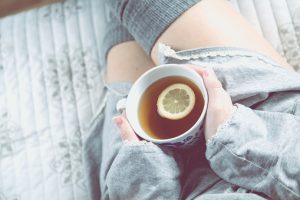 I’m sure you’ve seen or heard about bedtime or sleepy teas. These teas promise to help you relax and promote sleep. Some people swear by them, while others are skeptical. Is this just a classic case of the placebo effect? It’s hard to know for sure, but that’s why we present you with the facts you need to know to make informed decisions about your health.
I’m sure you’ve seen or heard about bedtime or sleepy teas. These teas promise to help you relax and promote sleep. Some people swear by them, while others are skeptical. Is this just a classic case of the placebo effect? It’s hard to know for sure, but that’s why we present you with the facts you need to know to make informed decisions about your health.
With such a large variety of sleepy teas on the market, it’s hard to just choose one. We will explore the key ingredients you should look for when purchasing a sleepy tea.
Ingredients in bedtime teas that can help you sleep
Advertisement
Chamomile: There is some preliminary research suggesting that the chamomile flower can help you nod off, as it acts as a mild tranquilizer. Chamomile has been around for centuries and has been consumed for its ability to help you sleep.
Lavender: In one study, women who sniffed lavender experienced more REM sleep, which is known to be the restorative part of the sleep cycle. Other studies have shown lavender to stabilize mood and have sedative effects. In Germany, they have already approved lavender tea to treat insomnia.
Spearmint and peppermint: For individuals who have trouble sleeping due to stomach troubles like gas or indigestion, drinking a tea with spearmint or peppermint may offer relief. Also, studies on rats found peppermint may increase the length of sleep, but that study needs to be confirmed on humans—it doesn’t hurt to try, though!
Fennel: Fennel is known to relax muscles and aid in stomach problems like gas and bloating, which is why it may be added to bedtime teas to reduce these symptoms.
Passionflower: Whether or not passion flower is a good sleep aid is still up in the air. Some research has found passionflower to be effective at reducing anxiety and treating insomnia.
Lemongrass: There are only a handful of animal studies showing that sniffing lemongrass promoted longer sleep, but these studies aren’t enough to recommend it for human consumption to promote sleep.
Orange blossoms: There is some evidence that orange blossoms may reduce anxiety, but they’re usually added for flavor.
These bedtime teas sometimes also contain tilia/linden flowers, blackberry leaves, hawthorn, and rosebuds, but there isn’t strong research to suggest these ingredients improve sleep.
Advertisement
As you can tell, the evidence to support whether bedtime teas really work isn’t clear-cut. Although some ingredients may be beneficial, there still isn’t enough to support these teas as a full-proof sleep aid. On the other hand, there isn’t any harm in trying them out. As long as you opt for a natural tea, you don’t really have much to lose.
Just one word of caution: if you’re taking medication, check if it reacts with the herbal ingredients in your bedtime tea.
Related: Why it’s so important to get a good night’s sleep
